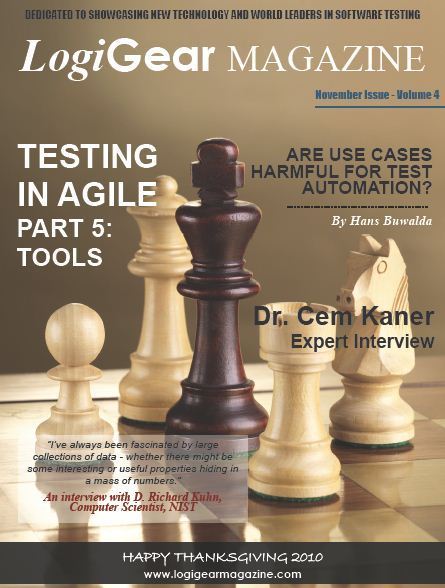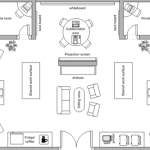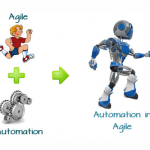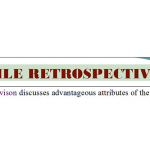Distinguishing these terms from each other can be rather confusing. In an attempt to go back to the basics, Nadine Schaeffer explains in detail the benefits and the necessity of using realistic situations.
If your Agile implementation is not about people, you’ve missed the boat! The most profound impact to becoming more Agile is happier teams! Agile manifesto Value #1: * Individuals and interactions over processes and tools Words like these do not show up in Waterfall or RUP SDLC process descriptions. Agile cannot get more basic than ...
Agile stresses instant and easy communication and is built on teams working efficiently together. This necessitates an open work space environment. A characteristic of an effective team is a high level of collaboration, making the physical work environment an important factor. Cubicles should be eliminated in favor of an open work space in an effort ...
Agile is a philosophy focused on delivering constant value to customers incrementally and frequently, based on communication and feedback. These two ingredients are vital to a successful Agile recipe. Agile is no longer a buzzword or an unknown territory in the industry. Agile has progressed leaps and bounds the last few years and has matured to ...
This article presents ten tips for Agile testing based on our experience. However, don’t expect to find the perfect test approach for your company or software project in this article. That is still something you will have to find out yourself! Several years ago I started as test manager on a J2EE project. The project ...
LogiGear Magazine – July 2013 – Agile Testing
SKILLS Agile teams need training! One of the missing links in the implementation of Agile development methods is the lack of training for teams. I noticed in our recent survey on Agile that only 47% of the respondents answered “Yes” that they had been trained in the Agile development process, with over half responding “No.” ...
One of the challenges with building an application these days is the number of dependencies that application will actually have on other applications. Ideally in order to know how that application will actually perform, application developers would be able to test their application against the application it depends on running in production. The odds of ...
Keeping an eye on the horizon in the testing world is an important part of staying in the game. Hans is no stranger to looking to the future with eyes wide and ears open. His expertise is what makes Hans valuable at the STARWEST Expo, which he recently delivered two talks to.
To begin this article, it would be a good idea to, remember this key point: Agile Manifesto Value #1 Individuals and interactions over processes and tools Tools work at the service of people. People, particularly intelligent people, can never be slaves to tools. People talking to each other, working together and solving problems is much ...
Agile Automation Michael Hackett – Senior Vice President – LogiGear Corporation Michael Hackett Michael is a co-founder of LogiGear Corporation, and has over two decades of experience in software engineering in banking, securities, healthcare and consumer electronics. Michael is a Certified Scrum Master and has co-authored two books on software testing. Testing Applications on the ...
One of the features of using Agile methods is the opportunity for continuous improvement within a project. There are a number of improvement opportunities throughout a typical iteration or sprint─over the next few weeks I’m going to walk through a few, starting this week with the Retrospective. Retrospectives are one of the many tools in ...
 LogiGear Magazine – November 2010
LogiGear Magazine – November 2010

















